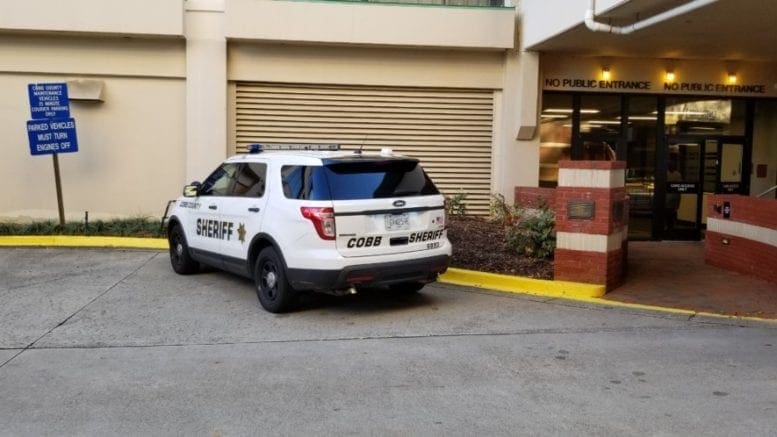The ACLU of Georgia announced their second town hall meeting about conditions in the Cobb County Adult Detention Center.
[ Correction: It has been pointed out to us that Cobb County SCLC is the host of the event, with ACLU of Georgia as a partner — Larry Johnson ]
The town hall will be Tuesday Feb. 18 at Zion Baptist Church, 165 Lemon St., Marietta. The doors open at 6:30 p.m. and the event begins at 7 p.m.
Here is the complete text of the announcement from the ACLU:
The ACLU of Georgia is again partnering with community organizations to hold a second town hall meeting to listen to the concerns of the families, friends, and community members as well as those who were formerly detained regarding the conditions in the Cobb County Detention Center.
Join the ACLU of Georgia, Cobb County Branch NAACP, Cobb County Chapter SCLC, Cobb Smart Justice Coalition, Cobb Ministerial Alliance, Inc., KSUnited, La Gente de Cobb, New Order, Omega Psi Phi Fraternity, Inc. Chi Gamma Gamma Chapter, and Street Groomers on Tuesday, February 18, at Zion Baptist Church in Marietta for a town hall meeting on the conditions at the Cobb County Detention Center.
Since the end of 2018, seven people have died while in custody of the Cobb County Detention Center run by the Cobb County Sheriff’s Office. Additional allegations include the jail failing to provide clean water, instituting a month-long lockdown, failing to permit visitation with family, delaying access to mail, preventing personal phone calls with loved ones, and banning the delivery of the Marietta Daily Journal.
Doors open at 6:30 p.m. and the town hall begins at 7 p.m.
The ACLU provided a link for people wanting more information.
Background on Cobb County jail
Inmates and their families, civil rights organizations, and the ACLU have lodged complaints about conditions in the Cobb County Adult Detention Center since a series of deaths of people in custody.
The ACLU of Georgia recently wrote a letter to the Cobb County Sheriff’s Office regarding allegations that the drinking water at the jail was contaminated. The letter stated that the lack of clean water could be a violation of two articles of the U.S. Constitution.
The Sheriff’s Office denied that inmates were going without clean water.
